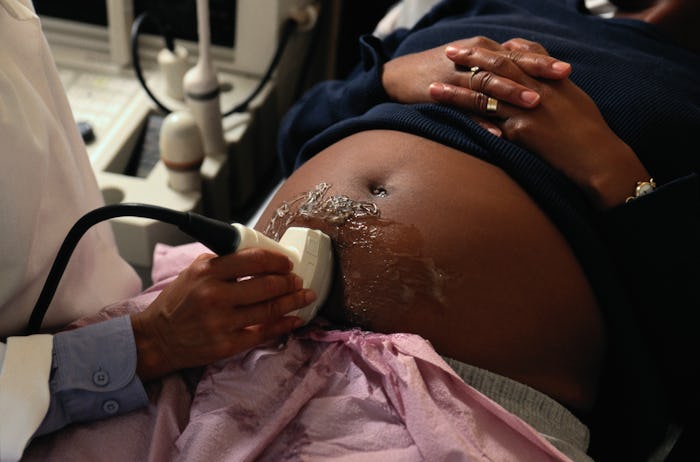News

New Study Provides Reassuring Research On Pregnancy, Birth, & COVID-19
As coronavirus cases continue to crop up in countries around the world, a new study has concluded that the risk of mom-to-baby transmission of coronavirus during pregnancy is low. In a systemic review of nearly 50 different studies, researchers found that coronavirus infection rates did not increase with vaginal births, breastfeeding, or close contact between mother and baby. As a result, researchers have argued that efforts to limit the spread of coronavirus through C-sections, formula feeding, and isolating newborns from their mothers after birth may be unwarranted.
Researchers at the School of Medicine at the University of Nottingham were prompted to dig into data pertaining to COVID-19 and pregnancy, birth, and breastfeeding due to concerns the novel coronavirus could be transmitted from mother to baby. "There has been a lot of concern around whether pregnant women should be concerned for the health of their babies if they contract COVID-19," the study's lead author Dr. Kate Walker said in a statement provided by the University of Nottingham. "We wanted to look at the outcome for babies whose mothers contracted the virus and see if the route of birth, method of infant feeding, and mother/baby interaction increased the risk of babies contracting the virus."
To estimate the risk of mom-to-baby transmission at birth, during breastfeeding, and with mother-infant interaction, Walker and her team conducted a systematic review of 49 different studies, which included a total of 655 mothers and 666 newborns (some mothers bore more than one child). Ultimately, their study, which was published Monday in BJOG: An International Journal of Obstetrics and Gynaecology, found infection and transmission rates did not increase for babies who were born vaginally, breastfed, or allowed close contact with the mother.
Of the 666 newborns involved in the study, only 28 — or 4% — tested positive for COVID-19 after birth. Of the 292 babies delivered vaginally, eight — or 2.7% — were confirmed to have COVID-19. Of the 374 babies delivered by C-section, 20 — or 5.3% — tested positive for COVID-19.
Researchers also found that seven of the 28 babies confirmed to have COVID-19 were breastfed, while three were given formula, and one was given expressed breast milk with a bottle. Feeding methods for the remaining 17 babies were not reported. Additionally, the study found that the newborns who contracted COVID-19 were generally asymptomatic.
"From our results, we are satisfied that the chance of newborn infection with COVID-19 is low," Walker said. "We would also stress that a vaginal birth and breastfeeding are safe for mothers who find themselves in these circumstances."
Beyond this new study, obstetrician/gynecologist Dr. Huma Farid and , infectious disease specialist and internist said in a post on the Harvard Health Blog from mid-May that the "risk of passing the infection to a fetus appears to be very low," citing data from various small studies.
Ultimately, while studies to date are encouraging, more research is needed to between understand how COVID-19 could impact pregnancy.
Studies referenced:
Walker, K.F., O’Donoghue, K., Grace, N., Dorling, J., Comeau, J.L., Li, W. and Thornton, J.G. (2020), Maternal transmission of SARS‐COV‐2 to the neonate, and possible routes for such transmission: A systematic review and critical analysis. BJOG: Int J Obstet Gy. Accepted Author Manuscript. doi:10.1111/1471-0528.16362
If you think you’re showing symptoms of coronavirus, which include fever, shortness of breath, and cough, call your doctor before going to get tested. If you’re anxious about the virus’s spread in your community, visit the CDC for up-to-date information and resources, or seek out mental health support. You can find all of Romper’s parents + coronavirus coverage here, and Bustle’s constantly updated, general “what to know about coronavirus” here.